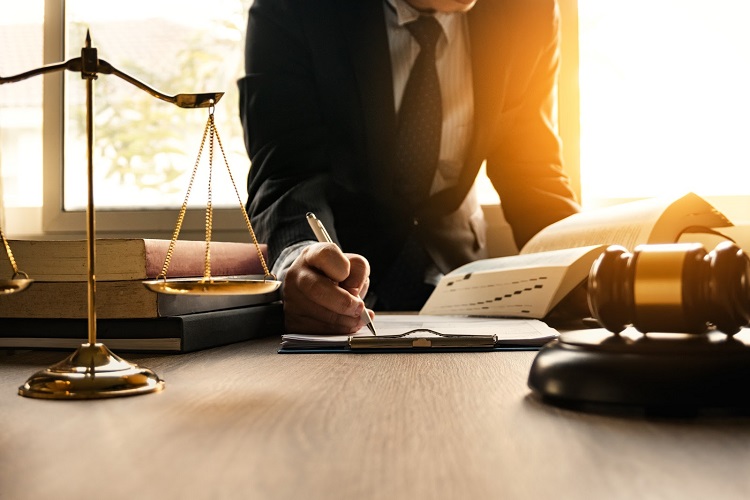Flying private means convenience, luxury, and speed. But when something goes wrong, the consequences can be catastrophic. Private jet crashes, while less frequent than commercial airline accidents, often involve complex investigations and serious legal implications. If you or a loved one has been affected by a private jet crash, knowing your legal rights is essential.
Table of Contents
Understanding the Nature of Private Jet Crashes
Private aviation includes charter jets, corporate planes, and personally owned aircraft. These flights are regulated by the Federal Aviation Administration (FAA), but the safety standards and oversight may not be as rigorous as those governing commercial airlines.
Causes of private jet crashes can vary widely:
- Pilot error
- Mechanical failure or poor maintenance
- Defective aircraft parts
- Poor weather decisions
- Negligent flight planning
Each crash is unique, and identifying what went wrong requires technical expertise and legal insight.
Who May Be Held Liable?
Determining liability in a private jet crash isn’t always straightforward. Several parties might be responsible:
- Pilot or flight crew: If the pilot was under the influence, fatigued, or made critical errors, they can be held accountable.
- Aircraft owner/operator: Private jets are often owned by individuals or companies. If they neglected maintenance or safety protocols, they may be liable.
- Maintenance providers: Improper maintenance or overlooked repairs can lead to disaster.
- Aircraft or parts manufacturers: If a mechanical failure was due to a design or manufacturing defect, the company behind the product can be sued.
- Air traffic control or airport authorities: Errors in communication or oversight might also play a role.
Establishing fault typically requires a deep dive into FAA records, maintenance logs, pilot certifications, and more.
Legal Options for Victims and Families
Private jet crashes often result in severe injuries or fatalities. Survivors and families of victims have multiple legal avenues to pursue justice and compensation.
1. Wrongful Death Claims
When someone dies in a crash, surviving family members can file a wrongful death lawsuit. These suits seek compensation for loss of companionship, emotional suffering, and financial dependency.
2. Personal Injury Lawsuits
If the crash survivor suffers injuries, they can seek damages for medical costs, lost income, pain and suffering, and long-term rehabilitation.
3. Product Liability Cases
When mechanical failure is due to faulty components, victims can file a product liability claim against the manufacturer. These cases often involve engineering experts to prove that the part was defective and contributed to the crash.
4. Negligence Claims
Negligence is a common claim in aviation cases. If a pilot ignored safety protocols or a company failed to inspect the aircraft properly, you can sue for negligent conduct.
What Compensation Can You Recover?
The value of a case depends on several factors, including the extent of the injuries, medical bills, impact on quality of life, and whether the victim was the primary earner for a family.
Compensation might include:
- Economic damages (medical expenses, lost wages, funeral costs)
- Non-monetary damages, such as pain, suffering, and consortium loss
- Punitive damages (in situations of extreme carelessness or irresponsibility)
Every case is different, and working with an attorney who understands aviation law is key to getting a fair settlement or judgment.
Navigating Insurance in Private Jet Accidents
Insurance coverage in private aviation can be complicated. Policies may involve the aircraft owner, the charter company, the pilot, or third-party insurers.
Some aircraft operators may carry minimal coverage, while others have extensive policies that still leave loopholes. Determining who holds which policy, and how much each policy covers, is part of the legal strategy.
An experienced lawyer will investigate all possible insurance angles, including:
- Aircraft liability insurance
- Passenger liability insurance
- Manufacturer product liability coverage
- Umbrella and excess liability policies
International Considerations
If the crash occurs outside the United States or involves a foreign-registered aircraft, international aviation law may come into play. The Montreal Convention and other treaties could impact how and where you can file a lawsuit.
Some legal systems impose limits on damages or have very different legal standards. It’s critical to work with legal counsel who can navigate both domestic and international legal environments.
Time Limits: The Statute of Limitations
Aviation claims are subject to strict deadlines. These statutes of limitations vary by state and the type of claim being filed.
For instance:
- Personal injury: usually 2-3 years from the date of the crash
- Wrongful death: also typically 2-3 years
- Product liability may vary based on the discovery of the defect
If you miss the deadline, you could lose the right to file a claim altogether. That’s why early legal consultation is crucial.
Role of Aviation Experts in Legal Claims
Due to the technical nature of aircraft crashes, expert witnesses play a huge role. These include:
- Aeronautical engineers
- Former FAA investigators
- Accident reconstruction specialists
- Aviation mechanics
They help establish cause, liability, and whether safety protocols were followed. Their testimony can make or break a case.
Choosing the Right Legal Representation
Aviation law is a specialized field. You need someone who not only understands personal injury law but also knows how to dissect flight records, maintenance logs, and FAA regulations.
Pennsylvania Aviation Accident Lawyers are particularly skilled in handling cases involving private jet crashes, with experience navigating both federal aviation laws and state-level tort claims. Choosing a law firm with specific experience in aviation accidents increases your chances of a successful outcome.
Final Thoughts on Taking Legal Action
Private jet crashes are tragic and complex. The emotional toll is immense, and the legal path forward can feel overwhelming. But you don’t have to face it alone. Knowing your options, understanding who may be liable, and working with the right legal team can make all the difference in holding negligent parties accountable and securing the compensation you deserve.

